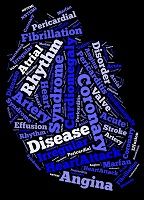Article
Women Not Worried about Number 1 Killer
Author(s):
Heart disease is the number one killer of US women, but a national survey found cardiovascular health is not on most women's radar.

Heart disease is the number one killer of US women, but a national survey last year found cardiovascular health is not on most women's radar.
Reporting at the American Heart Association 2015 Scientific Sessions, in Orlando, FL, C. Noel Bairey Merz, MD of Cedars-Sinai Medical Center in Los Angeles, CA said women tend to get concerned about the condition only when they know another women who has it or died from it.
"Knowing another woman with heart disease raised personal concern for heart disease," Merz said.
A 2014 nationally representative survey of 1,011 women showed only 27% could name a woman in their own lives who heart disease and 11 percent could name someone who died of heart disease. That lack of focus on the threat the illness poses "underscores the disconnect most women experience between the widespread nature of women's heart disease and their personal perceptions," Merz said.
Physicians could also do a better job of raising awareness and treating their female patients. The study found that while men are cautioned about their cholesterol and blood pressure, women usually just get warnings about being overweight, and that in turn can make them reluctant to return to a physician's office if they have not dropped some extra pounds.
"Although heart disease and stroke death rates am ong men have dropped steadily over the last 25 years, women's rates have fallen at a much slower rate," the AHA noted in a statement about the study.
Other findings revealed that while 70% of women surveyed said they had had a routine physical in the year before the survey, only 40% said exam included a heart assessment.
Merz advised women to get screened for heart disease and to to get their atherosclerotic cardiovascular disease score, which the AHA is promoting as the "A-risk score."
The study was funded by the Women's Heart Alliance, a joint venture of the Barbra Streisand Women's Heart Center and the Ronald O. Perelman Heart Institute at New York-Presbyterian Hospital/Weill Cornell Medical Center.





